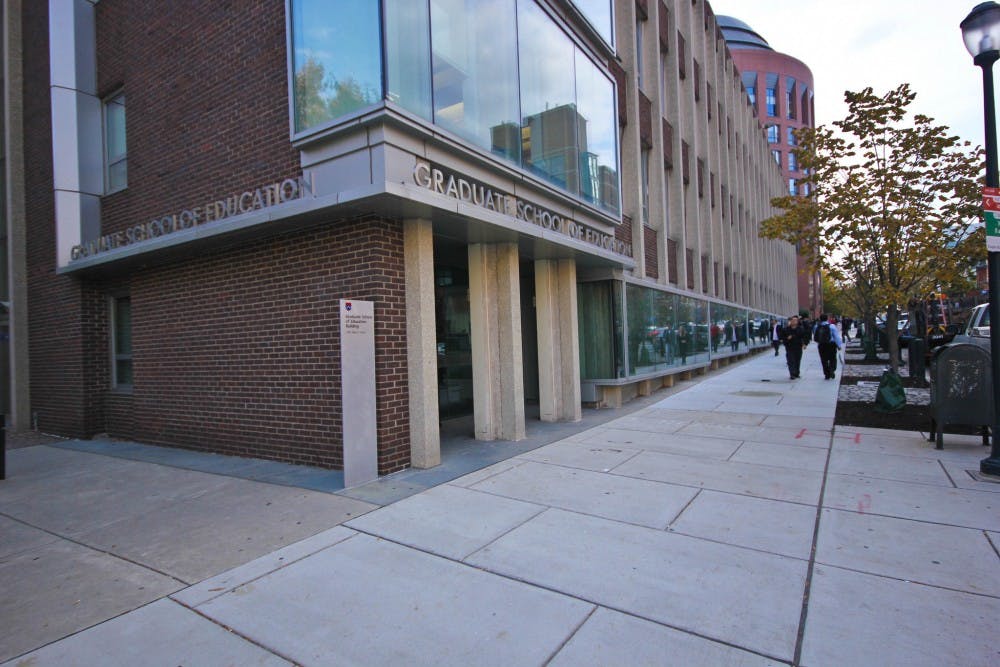Submatriculation into one of Penn's graduate schools can save students time and money — but some may need to determine whether pursuing an advanced degree through this type of program is worthwhile.
Submatriculation allows students to complete their first year of graduate study during their senior year as undergraduates, and exists in many forms on Penn’s campus. In the College of Arts and Sciences, students have the option of submatriculating within their department or within professional schools such as the Graduate School of Education, Penn Law School and the School of Dental Medicine. Nursing, Engineering and Wharton also offer opportunities for undergraduates to earn higher degrees on an expedited timeframe.
But not all departments offer this option. Some popular majors within the College, such as History and Political Science, do not allow students to begin graduate work early.
“It was kind of a shock to me because I’d heard a lot about submatriculation in Engineering, and I realized it’s not really offered, at least with my major, at Penn," dual-degree senior Max Morant said.
This discrepancy is mostly due to the fact that many graduate divisions are geared towards Ph.D. students — submatriculation, which generally allows students to pursue their master's degree, doesn’t always work with the department’s existing structure.
“The graduate level of Arts and Sciences departments are actually set up to offer the Ph.D. That’s the terminal degree,” said College of Arts and Sciences Assistant Dean for Advising Gary Purpura. “A lot of the departments don’t have a master's program at all.”
As a result, only departments that can sustain a master's program independent of the Ph.D. — such as Chemistry and Mathematics — offer submatriculation programs, and submatriculant numbers are low. However, departments such as Criminology and Bioethics have recently made efforts to emphasize the possibility of submatriculation to their students.
There are also differences between the benefits of submatriculating in different schools. Morant considered submatriculation in his Engineering major of Computer Science because of the career benefits.
“There’s a big pay bump, and it makes you more competitive,” Morant said. “Students encourage other students to submatriculate because it gives you tangible advantages. For people who want to work within their major, submatriculation is a really a good idea."
Maryeileen Griffith, the Mechanical Engineering and Applied Mechanics and Integrated Product Design graduate program coordinator, confirmed the vocational benefits of submatriculating in Engineering.
“Obtaining a master's degree can make a SEAS graduate more marketable when looking for employment after graduation,” she said.
Morant also says that submatriculation within a single Engineering department can act as a logical extension of undergraduate studies — many SEAS students take 500-level courses before graduation, so taking a few more graduate courses is a minimal change.
In other schools, the stakes may be different. In the College, for instance, the career benefits of submatriculation may not be as apparent. In fact, submatriculation could actually be a waste of time for those who plan to pursue a Ph.D.
“In terms of the master's in Arts and Sciences, it’s not clear to me what kind of professional benefit that might have,” Purpura said. “These are fields where the Ph.D. is the terminal degree. So doing submatriculation and getting a master's, I don’t know if that’s really going to have a professional advantage … and it’s unlikely you’d get any credit for a Ph.D. from that master's you may have done as a submatriculant.”
Given this, many students who submatriculate within the College do so to further their intellectual interests rather than to advance their career plans — those who finish their majors early and want to continue study in that area are good candidates for the program. The exception, Purpura said, are those who enroll in programs within the professional schools. In these cases, submatriculation saves students a year of time on a degree they would probably pursue anyways.
Regardless of the school and program, submatriculation can save students time and, given the fact that submatriculants pay undergraduate tuition for their first year of grad school, money. However, advisors say that students must plan well and be aware of the pros and cons in order to ensure that submatriculation is the right option for them.
“Students who want to consider submatriculation need to be as clear as they can be about their rationale,” Purpura said. “Are they doing it for personal intellectual reasons, are they doing it for professional reasons or is there some other reason? The clearer they can be about their rationale, the more confident they can be in their decision of whether or not to pursue submatriculation.”



